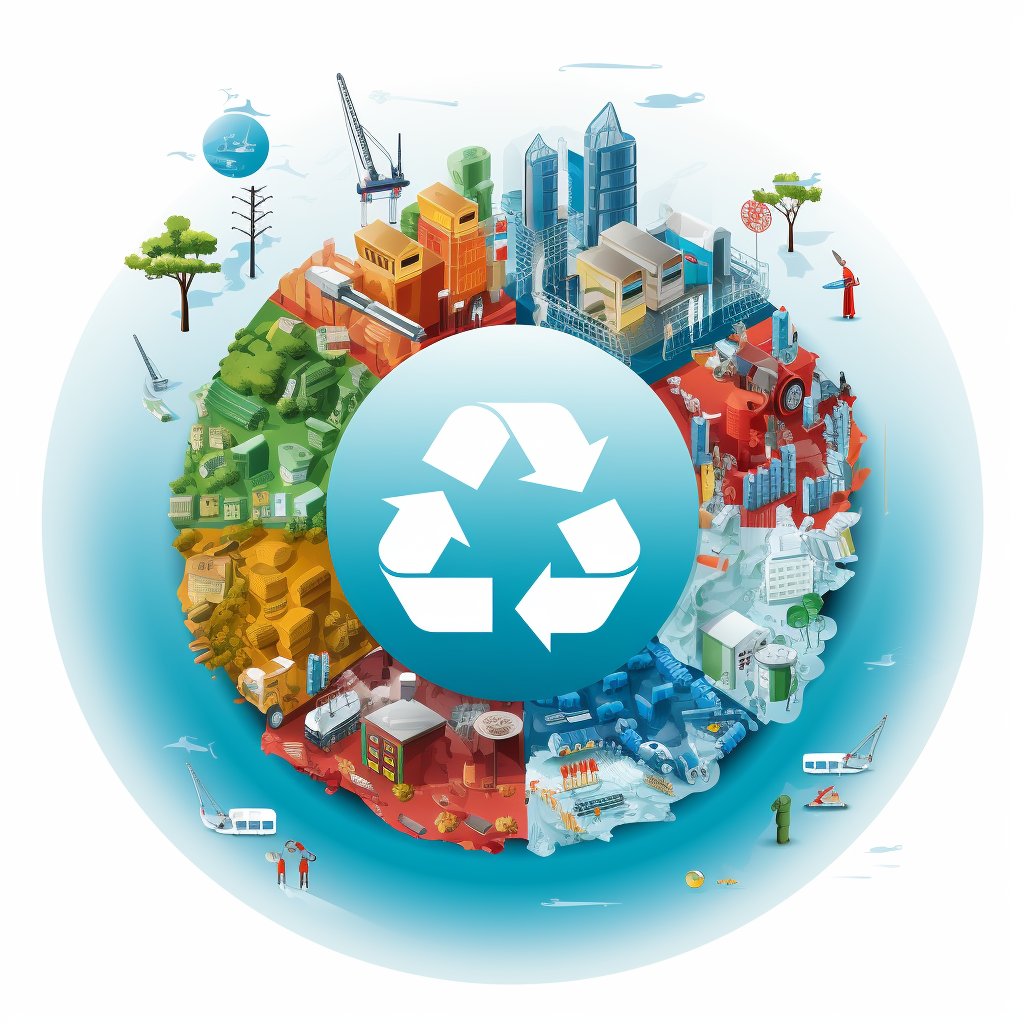Deposit schemes are an effective way to promote recycling and reduce waste. These schemes work by requiring a small fee to be paid upfront for a product, which is refunded when the product is returned for recycling. These schemes have been used for many years in various industries to promote recycling and have proven highly effective.
Deposit schemes, or bottle bill programs or container deposit legislation, have emerged as a key strategy for promoting recycling and reducing waste worldwide. These programs incentivise consumers to return used beverage containers for recycling by requiring a deposit fee at the time of purchase, which is refunded when the containers are returned. Deposit schemes have been implemented in various industries, including plastics and recycling, with significant environmental, economic, and social benefits.

Different Deposit Schemes:
Different deposit schemes are available that vary depending on the industry and the product. The most common deposit schemes include:
- Bottle Deposit Scheme: This is a scheme where a small fee is paid upfront for a bottle, which is refunded when the bottle is returned. This type of scheme is commonly used for beverage containers, such as soda bottles, water bottles, and beer bottles.
- Container Deposit Scheme: This scheme is where a small fee is paid upfront for a container, which is refunded when the container is returned. This type of scheme is commonly used for industrial containers, such as drums, tanks, and barrels.
- Packaging Deposit Scheme: This is a scheme where a small fee is paid upfront for a product’s packaging, which is refunded when the packaging is returned. This scheme is commonly used for consumer products, such as electronics, appliances, and furniture.
Industrial Usage:
Deposit schemes are commonly used in various industries, including the plastics and the recycling industries. In the plastics industry, deposit schemes promote the recycling of plastic products, such as bottles, containers, and packaging. These schemes have effectively reduced plastic waste and promoted sustainable practices.
In the recycling industry, deposit schemes incentivise the recycling of various products, including glass, metal, and paper. These schemes have been used for many years and have proven to be highly effective in reducing waste and promoting sustainable practices.
Application Areas:
Deposit schemes can be used in various ding consumer, industrial, and commerapplicationsducts. In consumer products, deposit schemes are commonly used for beverage containers, such as soda bottles and water bottles. In industrial products, deposit schemes are widely used for industrial containers, such as drums, tanks, and barrels.
Consumer Product Examples:
Deposit schemes are commonly used for various consumer products, including:
- Soda Bottles: In many countries, a deposit is required for soda bottles, which is refunded when the bottle is returned for recycling.
- Water Bottles: Deposit schemes for water bottles have been introduced in many countries to promote the recycling of these products.
- Electronics: Deposit schemes are commonly used for electronics, such as televisions and computers, to promote recycling these products.
Material Properties:
Deposit schemes are commonly used for various materials, including plastic, glass, metal, and paper. The material properties of these materials vary, and deposit schemes can be tailored to each material to promote effective recycling.
For example, deposit schemes for plastic bottles may require a higher fee than deposit schemes for glass bottles, as plastic is more difficult to recycle than glass. Similarly, deposit schemes for metal containers may require a lower fee than deposit schemes for paper containers, as metal is easier to recycle than paper.

Market Price Developments:
Various factors, including the material properties of the product, the recycling process, and the demand for recycled products influence the market price of deposit schemes. The price of deposit schemes can also be affected by government policies and regulations changes.
For example, the price of deposit schemes for plastic bottles may increase due to the increased cost of recycling plastic products. Similarly, the price of deposit schemes for glass bottles may decrease due to the increased demand for recycled glass products.
Global Impact:
Deposit schemes have a significant impact on the global economy and environment. These schemes promote sustainable practices, reduce waste, and promote the recycling of various materials, including plastics, glass, metal, and paper.
Deposit schemes also positively impact the environment by reducing the amount of waste that ends up in landfills and oceans. This, in turn, reduces the environmental impact of waste, including greenhouse gas emissions, pollution, and habitat destruction.
Future Market Prognosis:
The future of deposit schemes looks bright as the world becomes more environmentally conscious and sustainable practices become more common. Deposit schemes are expected to be increasingly important in promoting recycling and reducing waste. They are expected to become more common in various industries, including the plastics industry and the recycling industry.
One of the key trends in deposit schemes is the use of technology to promote effective recycling. This includes using sensors, data analytics, and artificial intelligence to optimise recycling processes and reduce waste.
Deposit schemes around the world
Deposit schemes have been implemented in various countries worldwide, with different levels of success and impact. These schemes have both environmental and economic benefits, and their implementation varies depending on each country’s specific context and needs.
Environmental Impact:
Deposit schemes significantly impact the environment as they promote recycling and reduce waste. By incentivising consumers and industries to recycle, deposit schemes help reduce the amount of waste in landfills, oceans, and other natural habitats. This, in turn, helps to reduce greenhouse gas emissions, pollution, and other negative environmental impacts.
For example, in Germany, implementing a deposit scheme for plastic bottles has helped to increase the recycling rate of these products from 64% in 2003 to 98.5% in 2019. Similarly, in Norway, implementing a deposit scheme for plastic bottles and cans has helped reduce litter by up to 70%.
Economic Impact:
Deposit schemes also have a significant economic impact, as they help to create jobs and promote the growth of recycling industries. By creating a market for recycled materials, deposit schemes help to promote economic growth and development while reducing the cost of waste management for governments and businesses.
For example, in the United States, implementing a deposit scheme for beverage containers has helped create jobs in the recycling industry, with an estimated 37,000 jobs created in California alone. Similarly, in Finland, implementing a deposit scheme for beverage containers has helped reduce the cost of waste management by up to 50%.
Implementation:
Deposit schemes are implemented differently in different countries, depending on each country’s specific context and needs. In some countries, deposit schemes are mandatory, while in others they are voluntary. The types of products covered by deposit schemes also vary, with some countries including only certain types of beverage containers, while others include a broader range of products.
For example, in Germany, the deposit scheme for plastic bottles is mandatory, and applies to all types of plastic bottles, regardless of their size or contents. In contrast, in the United States, deposit schemes for beverage containers are voluntary and vary by state. Some states include only certain types of beverage containers, while others include a broader range of products.
Global examples:
In Germany, for example, the deposit scheme for plastic bottles is mandatory, and applies to all types of plastic bottles, regardless of their size or contents. In contrast, in the United States, deposit schemes for beverage containers are voluntary and vary by state. Some states include only certain types of beverage containers, while others include a broader range of products.
Deposit schemes:
Deposit schemes have emerged as a powerful tool for promoting recycling and reducing waste in the plastics and recycling industries. By incentivising consumers to return used beverage containers for recycling, these programs help protect the environment and generate economic benefits for stakeholders across the supply chain. As we look towards the future of recycling and sustainable practices, deposit schemes will likely play an even more significant role in shaping the industry. Whether you’re a professional in the field or a student interested in environmental issues, understanding deposit schemes’ processes, advantages, and challenges can help you stay ahead of the curve and contribute to a more sustainable future.







